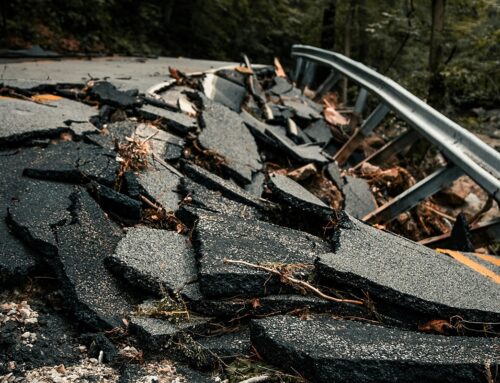Earlier this month, I wrote about the looming crisis with the Highway Trust Fund in the wake of the Congressional Budget Office announcing the $8.1 billion shortfall the fund has for the year.
As I said then and, sadly, I am sure I will have to say again, this problem was predictable. Back in 2005, we warned that the big transportation bill authorized more spending from the trust fund than there would be in gas tax revenues. We were right, and lawmakers started backfilling the fund with revenue from the Treasury. Then, in 2012, Congress did it again, passing a bill with more spending than trust fund revenue. But this time they used a gimmick called “pension smoothing” as an offset to pay for the extra transportation funding. This is a well-known gimmick Congress likes to use as a way to pay for different things, like unemployment insurance (Democrats) or repeal of the Affordable Care Act's tax on certain medical devices (Republicans).
And now, in an effort to address the truly imminent solvency issues at the Highway Trust Fund, which would result in significant slowdowns in highway construction right in the middle of the busiest construction season of the year, Congress has gone to the gimmick well once again.
The bill passed by the House of Representatives last week takes these bogus savings, which accrue over the next 10 years, and uses it to cover less than one year of transportation spending. Congress is forced to come up with these increasingly convoluted funding mechanisms because the gas tax doesn’t cover the amounts lawmakers want to spend each year on transportation. This has been true for years, but Congress refuses to address the underlying problem. And so it has to continually find offsets, real or imagined, to cover the annual shortfall.
The pension smoothing offset doesn’t actually save taxpayers any money, even though it is counted as savings. By permitting employers to delay contributions to employee pension plans, it temporarily reduces corporate tax deductions, thereby increasing tax revenue. But since it doesn’t reduce actual pension obligations, it means corporate tax deductions will increase in the future, lowering future tax revenues. For taxpayers, it effectively pushes certain costs further into the future, outside the 10-year budget window, so it looks like savings now, even though it will actually cost more in the long run.
This is where it gets good, but also more complicated. Transfers from the Treasury to the Highway Trust Fund do not count against statutory pay-as-you-go budget constraints and would not have to be offset. But as gimmicky as they were, the House did include the offsets described above. That gets recorded as new revenue, so unless Congress tells the government’s accountant, the Office of Management and Budget, to ignore the revenue, this bill would go into the books as a net savings to the Treasury, even though Congress is turning around and transferring all of the money to the Highway Trust Fund. Congress could then spend billions of dollars more this year without providing offsets. In other words, this bill could have double the impact on the deficit.
To review: Congress has found a way to temporarily reduce corporate tax deductions in order to increase tax revenue during the next 10 years, so that it can spend all of that money in the next year to cover the annual shortfall in transportation spending. Not only does this potentially lower future tax revenue, but it allows Congress to avoid fixing the problem of a perennially underfunded Highway Trust Fund. What’s more, the legislation that passed the House fails to account for the spending, creating the possibility that it will actually spend twice as much as it is planning to. Voilà, Congress has found a way to take a bad situation and make it worse.
Only with the consent of both parties do we find ourselves in this mess. We need Congress to grapple with the underlying challenges facing the highway trust fund – and the country.














Get Social